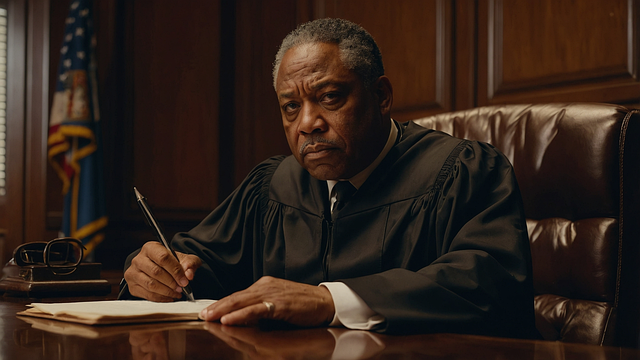Antitrust laws aim to promote fair competition, penalizing companies for price fixing, market division, or monopolistic behavior with fines and criminal charges. When facing allegations, appealing a criminal sentence decision is complex but crucial, requiring specialized legal expertise to navigate antitrust intricacies, explore defenses, and achieve favorable outcomes, including avoiding indictment. This process involves reviewing evidence, challenging legal decisions, and employing arguments like questioning law definitions or emphasizing minimal harm to consumers. Successful appeals set precedents, ensure justice, and maintain market competition integrity.
Antitrust violation cases have become increasingly complex, with companies facing severe consequences for breaking competition laws. This article delves into the intricate world of antitrust regulations, exploring key aspects like understanding the laws and their purpose, scenarios leading to violation charges, and the appeals process for criminal sentences. We dissect common arguments used to challenge convictions and present compelling case studies from notable appeals. Learn about navigating these legal complexities and the potential for reversing antitrust-related judgments through effective appeals strategies.
- Understanding Antitrust Laws and Their Purpose
- When Does a Company Face Antitrust Violation Charges?
- The Appeals Process: Appealing a Criminal Sentence in Antitrust Cases
- Common Arguments Used to Challenge Antitrust Convictions
- Case Studies: Notable Antitrust Violation Appeals
Understanding Antitrust Laws and Their Purpose

Antitrust laws are designed to promote fair competition in the marketplace and prevent companies from engaging in anti-competitive practices that could harm consumers and stifle economic growth. These laws, often referred to as competition laws, outline specific behaviors that constitute violations, such as price fixing, market division, and monopolistic conduct. Understanding these laws and their purpose is crucial for businesses and individuals alike, especially when navigating complex legal scenarios.
In cases of alleged antitrust violations, the consequences can be severe, including substantial fines and even criminal charges. Those accused may face a challenging journey through the legal system, particularly when appealing a criminal sentence decision. A skilled white collar defense attorney specializing in economic crimes can provide invaluable guidance. They can help navigate the complexities of antitrust laws, explore potential defenses, and advocate for the best possible outcome, including avoiding indictment altogether.
When Does a Company Face Antitrust Violation Charges?

When a company engages in practices that restrict competition or form agreements to control the market, it may face antitrust violation charges. This includes behaviors such as price-fixing, where companies collude to set uniform prices, or market division, where they agree not to compete for certain customers or territories. Such actions are deemed anti-competitive and harm consumers by limiting choices and driving up costs.
Antitrust laws vary across jurisdictions, but they generally aim to promote fair competition in the respective business landscape. Companies accused of antitrust violations can face severe consequences, including substantial fines and even criminal charges. In high-stakes cases, appealing a criminal sentence decision becomes crucial for businesses, especially when dealing with white-collar and economic crimes. The outcome can significantly impact their future operations and reputation.
The Appeals Process: Appealing a Criminal Sentence in Antitrust Cases

In cases of antitrust violations, an individual found guilty may face criminal sentences, which can be appealed. The appeals process allows for a thorough review of the evidence and legal decisions made during the trial. When appealing a criminal sentence in antitrust cases, defendants often present arguments related to procedural errors, the weight of evidence, or interpretations of antitrust laws. A winning challenging defense verdict in these scenarios is not uncommon, as it provides an opportunity to clarify complex legal matters and protect the respective business interests involved.
The appeals process offers a second chance to navigate through white-collar and economic crimes, ensuring that justice is served while upholding the integrity of market competition. Through meticulous legal strategies, defendants can challenge their sentences, aiming for a more favorable outcome. This process is particularly important in cases where the initial verdict may have set a precedent or had significant implications for similar future cases.
Common Arguments Used to Challenge Antitrust Convictions

When facing antitrust violation cases and appealing a criminal sentence decision, several common arguments are employed by legal teams to challenge their clients’ convictions. One strategy is to question the definition and application of antitrust laws, arguing that certain behaviors deemed anti-competitive might be necessary for market efficiency or innovation. This approach often involves a nuanced interpretation of relevant statutes, aiming to differentiate between legitimate business strategies and illegal agreements.
Another line of defense focuses on the absence of substantial harm to consumers or competition. Defense attorneys may present evidence showcasing minimal impact on market dynamics, suggesting that even if an agreement existed, it didn’t result in any significant detrimental effects. Moreover, they might highlight their client’s unprecedented track record in maintaining fair practices, asserting that a single incident doesn’t define their overall business conduct.
Case Studies: Notable Antitrust Violation Appeals

In the realm of antitrust law, notable cases often set precedents and shape future strategies for both regulators and businesses. When companies violate antitrust regulations, appealing a criminal sentence decision can be a complex process. These appeals often turn on intricate legal arguments regarding market definition, competitive impact, and the interpretation of relevant statutes. Case studies of successful appeals highlight the importance of robust legal representation and a thorough understanding of the law.
Achieving extraordinary results in antitrust violation cases requires an unprecedented track record of strategic advocacy. Jury trials play a pivotal role in these matters, as they provide a platform for presenting complex economic evidence and arguments to a group of citizens who must reach a unanimous decision. The outcome of such trials can significantly influence future legal strategies and shape the competitive landscape, ensuring fair market practices.
In navigating the complex landscape of antitrust law, understanding both the violation and the appeals process is paramount. From recognizing the conditions that trigger antitrust charges to exploring common arguments for appeal, this article has provided insights into the intricate tapestry of these cases. When facing a criminal sentence decision, it’s crucial to remember that appealing a conviction can offer a path to reversal, as evidenced by successful case studies. By staying informed and employing strategic legal challenges, companies can navigate these proceedings with a focus on fairness and justice.






